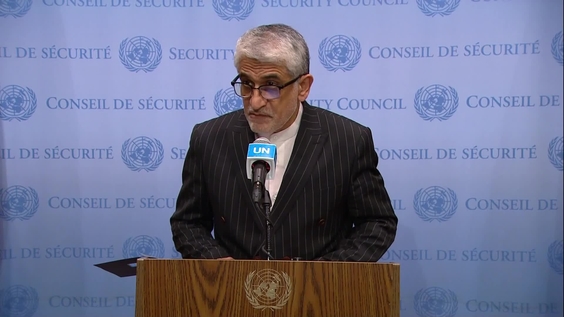ALWAGHT- The Islamic Republic’s ambassador to the United Nations affirmed that Iran will not yield to any restrictions placed on its missile power.
Iran’s ambassador to the United Nations, Amir Saeid Iravani, emphasized that Iran will not accept any restrictions on its missile capabilities, asserting that Iran’s military strength was crucial in compelling Israel to request a ceasefire amid recent hostilities. He highlighted that the resistance groups opposing Israel have yet to reach a level capable of forcing a ceasefire, unlike Iran’s powerful military response, which inflicted significant social, political, and economic damage on the Israeli regime. Iravani also referenced US President Donald Trump’s acknowledgment that the damage caused by Iran was a decisive factor in Israel seeking a ceasefire, underscoring Iran’s refusal to disarm or relinquish its strategic military leverage.
Regarding Iran’s nuclear program, Iravani reaffirmed Iran’s commitment to enriching uranium on its own soil while expressing openness to regional cooperation through a nuclear consortium, as previously proposed in talks with the United States. He stated that such a consortium could complement but not replace Iran’s domestic enrichment activities. Iran is willing to consider transferring some enriched uranium stockpiles abroad or placing them under International Atomic Energy Agency (IAEA) supervision if a suitable agreement is reached. However, Iran insists that any deal must respect its rights as a responsible member of the Non-Proliferation Treaty (NPT) and uphold its sovereign nuclear activities.
The recent conflict escalated after Israel’s airstrikes targeted Iranian nuclear, military, and residential sites, killing hundreds including top commanders and scientists. Iran retaliated with multiple waves of missile strikes against Israeli targets, causing significant damage and forcing Israel into a US-brokered unilateral ceasefire. Despite US claims of obliterating Iran’s nuclear facilities, Iranian officials maintain that their nuclear infrastructure remains intact and deeply embedded in the country’s scientific and technological framework. Iran’s military and political leadership have vowed to continue defending their sovereignty and nuclear program against any future aggression.



























